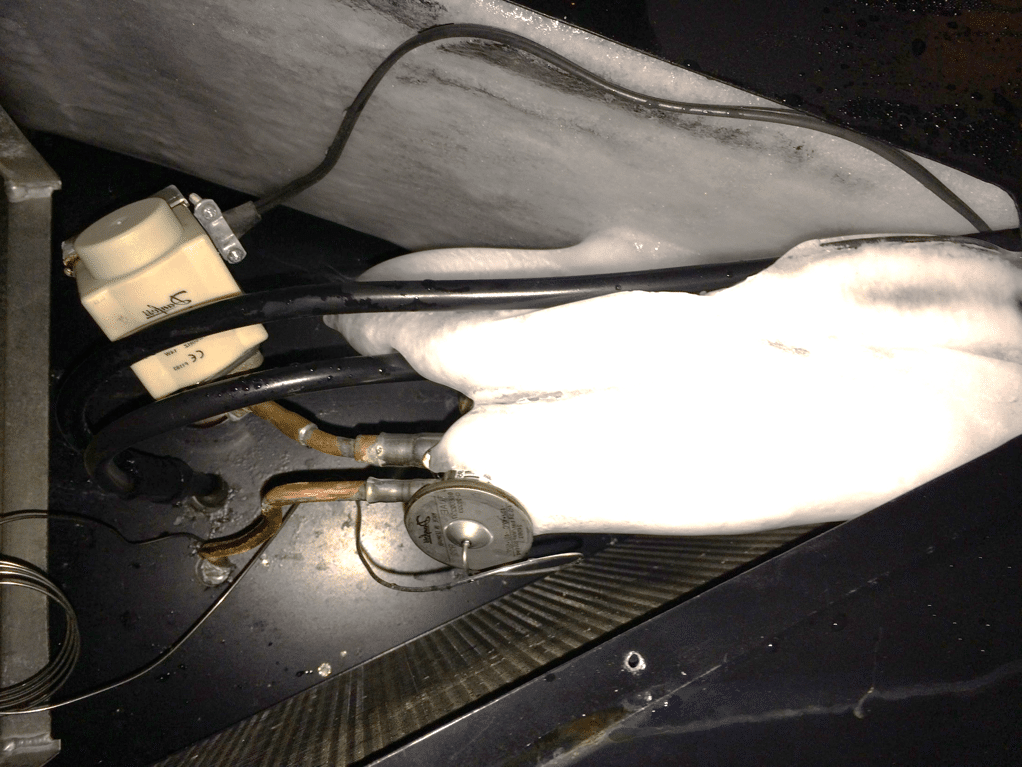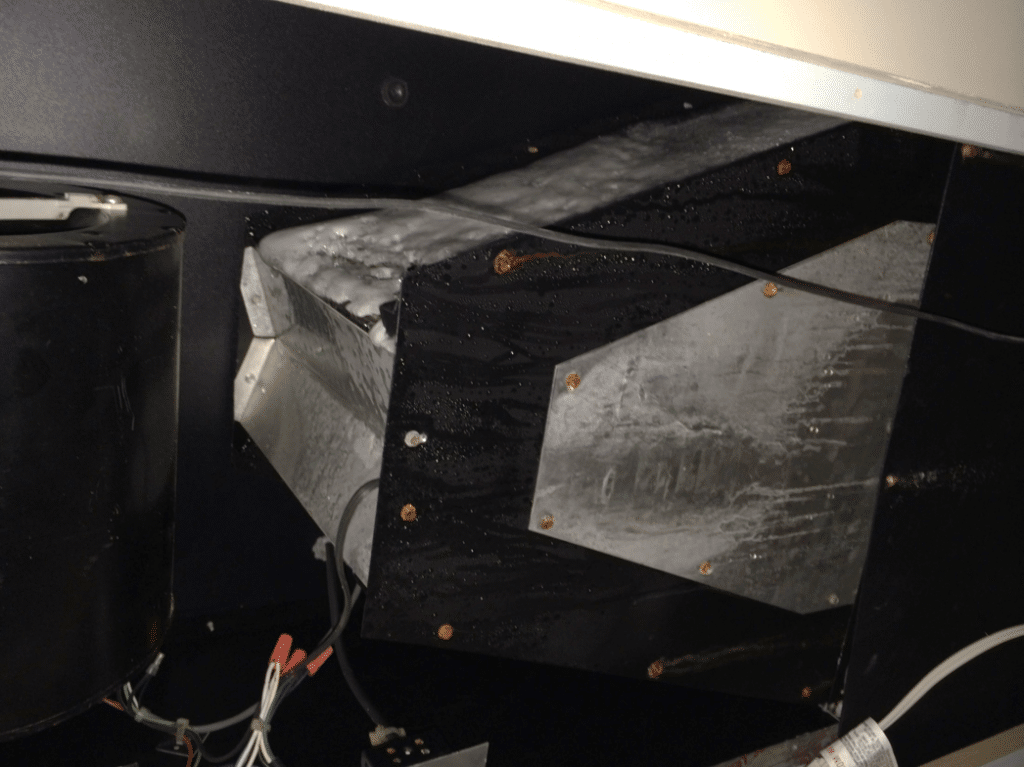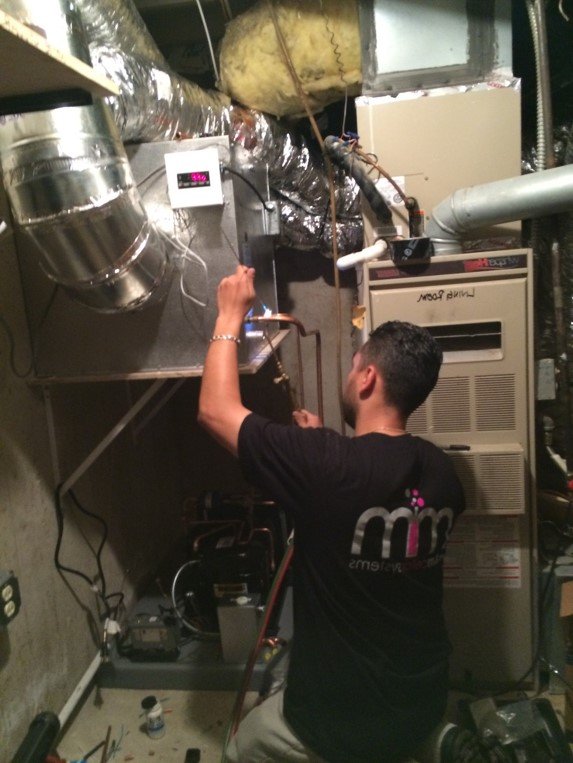This service call, for a Hollywood movie star’s home wine cellar, is both typical and tragic. His wine collection’s integrity was compromised by a malfunctioning refrigeration system. We can only imagine the investment at risk. The question is, could this have been avoided?
Refrigeration System Iced Up
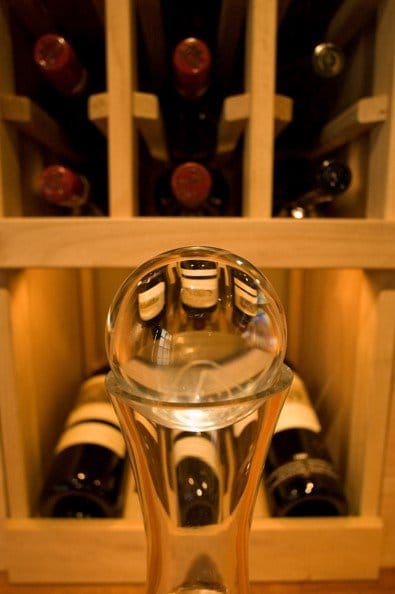
The Best Temperature is Between 55-57 Degrees Fahrenheit
When we arrived the cooling system’s coil was completely iced up with the fan running ineffectually. The wine cellar’s temperature was well above 60 degrees Fahrenheit (16 Celsius), we learned that it had been this way for an unknown extended period. From the condition of the coil, probably many months.
Poor Storage – Poor Wine
To correctly age and protect wine the best temperature is between 55-57 degrees Fahrenheit (12 – 14 Celsius) with stability being the key. If a wine collection is kept outside of that, or allowed to fluctuate for an extended period, vintage wines are at risk. This is not an issue with your typical bottle of cheap plonk, however, higher quality wines are made to age.
To the inexperienced, it is common to assume that when wine tastes bad, or just off, it has been poorly made by the winery. However, methods of wine-making have evolved dramatically over the past twenty-five years. This has resulted in far fewer instances where problems originated in the winery.
Nowadays most problems with wine quality are due to poor storage conditions.
Diagnose and Repair
In order to get the system running properly, over the course of a couple of hours, we had to completely defrost the unit and check the Freon pressure. Upon doing so, we discovered that the pressure was very low. We added Freon adjusted the pressure to the correct level and checked for leaks.
To detect a leak we add a fluorescing agent which allows us to use an ultraviolet light source to find where the leak might be. If the leak is in an assessable part of the system, we can often easily seal the leak avoiding the necessity of replacing the coils. However, in this case, we did not find any leaks. This does not imply that there is not a leak, just that it is a very slow leak and therefore difficult to detect.
With a leak like this, it can take several months for the pressure to degrade. However, once the pressure does degrade beyond a certain point, the system will no longer be cooling properly. In this case, we believe the most likely cause of the problem was that the original fan speed was set too low. This would naturally result in the Freon not evaporating properly in the coil, causing a leak in the first place.
To get the client’s wine cellar functioning properly we corrected for fan speed, and Freon pressure and checked/cleaned the condensate pan. We lubricated and inspected all moving parts to ensure they were operating properly. Within 30 minutes of correcting all the problems, the wine room’s temperature stabilized at 55 degrees.
Long Term Solution – A Maintenance Plan
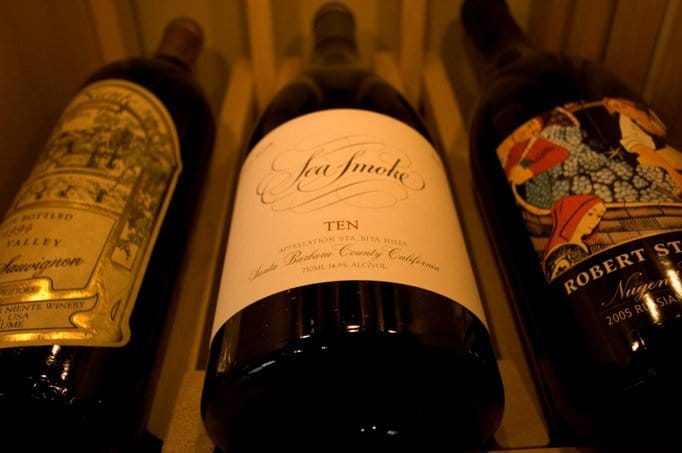
A Wine Cellar is a Closed System with many Mechanical Parts
To ensure a long-term solution we provided the client with a proactive maintenance plan, with the first scheduled call in approximately 40 days. This will allow us to check the pressure again and decide if the coil does indeed need to be replaced.
This Miami wine cellar client in Brentwood is not unusual in that many people who have a climate-controlled wine room built into a residential home, usually at great expense, assume that once the refrigeration system is installed, that’s it, no maintenance is required.
A wine cellar is a closed system with many mechanical parts. To have a trouble-free life, it is essential to implement a solid maintenance plan. Most cooling system problems set in gradually, before anyone notices or a significant failure occurs. However, if a refrigeration system is not checked, such as with this example, it’s the wine that is at risk.
Could This Have Been Avoided?
Yes, in all probability this type of malfunction would have been detected easily before the room’s temperature was significantly changed.
If you are a prospective residential wine owner, consider implementing a proactive maintenance plan. The cost of a maintenance plan will probably be insignificant compared to the investment you are likely to make in stocking your wine cellar.


